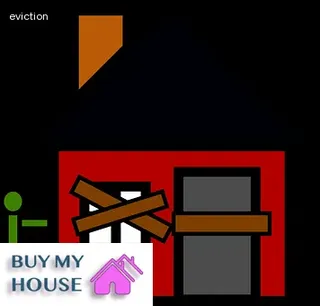Maryland landlords should familiarize themselves with the state’s tenant abandoned property laws. These laws outline how a landlord must handle possessions left behind by a tenant who vacated the rental unit without giving proper notice.
After a tenant has moved out, the landlord is responsible for securing the premises and determining what property belongs to the tenant. The first step is to take an inventory of all personal items and secure them on site or move them to another location in order to prevent theft or damage.
Maryland law requires that landlords must store these items for at least 45 days before disposing of or selling them. During this time, the landlord must make reasonable attempts to notify the tenant of their abandoned property and allow them an opportunity to reclaim it.
If after 45 days, the tenant has not made any attempt to recover their belongings, then the landlord may sell or dispose of them at their discretion. As such, it is important that Maryland landlords know their rights and obligations when it comes to dealing with abandoned property left behind by tenants.

When discussing the laws related to abandoned property in Maryland, there are a few key terms that landlords should understand. First, there is the concept of abandonment itself, which is when a tenant leaves behind personal belongings after vacating the property.
This is different from surrendering possession, which happens when the tenant has formally given up their lease and moved out. Another term to be aware of is an abandonment notice, which is a document that must be delivered to tenants prior to their abandonment of the premises.
Finally, landlords should also be familiar with lien rights and self-help repossession procedures, which allow them to take possession of abandoned items for storage or sale in order to recover unpaid rent or other damages owed by tenants. Understanding these terms will help landlords prepare and comply with laws regarding tenant abandoned property in Maryland.
Under Maryland law, it can be difficult to decipher what is considered tenant abandoned property and what isn't. Generally, if a tenant leaves behind any personal property upon vacating the rental unit and has not provided written consent to leave it behind, it is considered abandoned.
Additionally, landlords should note that if rent remains unpaid for a period of time and the tenant has failed to respond to attempts to contact them, any property left in the rental unit becomes legally abandoned. Furthermore, anything left in the unit more than 30 days after termination of tenancy qualifies as abandoned property.
It is important for landlords to understand that once a tenant has vacated the premises and left their belongings behind, it is not permissible for the landlord to simply dispose of those items. Instead, landlords must follow guidelines set by state law and notify tenants before disposing of or selling any items believed to be abandoned.
Otherwise, landlords may face hefty fines or legal action for violating tenant rights.

When a tenant abandons their rental property, Maryland landlords must be aware of the necessary steps to legally handle their abandoned property. Landlords must first provide the tenant with written notice that explains the landlord's intention to dispose of the abandoned property if it is not removed within a given time period.
If the tenant fails to take back their belongings, landlords may then proceed to sell or dispose of the items in order to recoup any outstanding rent and other costs associated with storing or disposing of said items. It is important for landlords to document all communications with tenants regarding abandoned possessions and any efforts made towards selling or disposing of them.
Maryland landlords are also encouraged to check local laws before selling any abandoned items as some counties have restrictions on how they may be sold or disposed of. Finally, all proceeds from selling a tenant’s abandoned possessions must be used to cover unpaid rent and other storage costs, with any remaining money reverting back to the tenant.
Maryland landlords should be aware of the consequences they may face if they fail to claim tenant abandoned property. If a landlord fails to timely file a written statement with the District Court claiming the property, then they will not legally be able to dispose of it.
Furthermore, if the landlord does not follow proper procedures for disposing of abandoned property—which must be done within 30 days—they may be liable for damages or even criminal penalties. In addition, abandonment rules in Maryland can change depending on the agreement that is made between landlord and tenant, so it is important to keep up to date with changing laws and regulations.
Lastly, if a tenant files a complaint against their former landlord regarding property abandonment, they may be entitled to court costs and attorney fees as a penalty. Landlords should take these potential consequences seriously when dealing with abandoned property in Maryland and make sure they understand all applicable laws and regulations before taking any action.

Maryland landlords should be aware of the risks associated with tenant abandoned property and take steps to protect their investments. The first step is to make sure that the language in the rental agreement is clear and explicit regarding any abandonment of property by tenants.
Landlords should also be prepared to document any instances where a tenant has left behind personal belongings, including taking photos and writing down a list of items that were left behind. Additionally, it is important for landlords to take prompt action if they believe that a tenant has abandoned their property, as waiting too long may result in legal complications.
Following these steps can help landlords reduce their risk when it comes to dealing with abandoned property and ensure that they are abiding by Maryland laws.
When it comes to dealing with unclaimed abandoned property, Maryland landlords should follow best practices for disposing of the items. It's important to be aware that some items may have sentimental value and should be treated accordingly.
To make sure that you are compliant with the law, take inventory of all the abandoned property left behind by a tenant and contact any utility companies or third parties that still have records of the tenant's accounts. In addition, be sure to include a statement in the lease agreement about how abandoned property will be handled if one is not returned in full upon move-out.
Finally, when it comes time for disposal, consider companies who specialize in taking care of abandoned property and can even help you recoup some money from the sale of these items.

When it comes to abandoned property laws in Maryland, there are some important exceptions for landlords to be aware of. These exceptions can have serious implications for the landlord's rights and responsibilities as well as any potential liabilities.
For instance, if a tenant has accumulated any unpaid rent or other charges prior to abandoning the rental property, the landlord has the right to pursue collection efforts even after abandonment. Additionally, if there is any personal property left behind when a tenant vacates, the landlord must make an effort to locate them before disposing of such items.
There are also certain legal restrictions that apply when attempting to sell or otherwise dispose of abandoned personal property, so it is important for landlords to familiarize themselves with applicable local and state laws prior to doing so. Furthermore, depending on the specific details of a given situation, there may be additional requirements which must be met before a tenant's tenancy can officially be considered terminated due to abandonment.
Ultimately, understanding these exceptions and their respective implications is essential for any Maryland landlord looking to protect their interests in such matters.
Landlords in Maryland should be aware of the possible penalties they may face if they violate tenant abandoned property laws. Depending on the severity of the violation, a landlord could be subject to fines, jail time, or both.
Fines can range from hundreds to thousands of dollars and may be issued by local or state authorities. Jail time is usually reserved for more serious violations and can last up to one year.
In addition to legal penalties, landlords may also face civil liability if they fail to follow state regulations regarding abandoned property. Landlords should also make sure that their tenants are aware of all relevant laws so that any disputes can be avoided before they start.

Maryland landlords should be aware of the requirements for a valid tenant application process. Every application must include a clear and concise description of the landlord's qualifications for acceptance or rejection of the tenant.
Qualifications may include income level, credit history, rental history, criminal background check and other factors that are important to the landlord. Landlords must also provide applicants with an appropriate amount of time to complete their applications and should make sure they have access to any forms or documents necessary to complete it.
Additionally, landlords should ensure that all applications are processed in a fair and consistent manner by taking into consideration all relevant information provided by each applicant. It is also important to note that some counties may have additional requirements for processing tenant applications so it is important for landlords to familiarize themselves with local laws that pertain to this process before beginning the screening process.
A tenancy agreement document is an important legal document for landlords in Maryland and contains the components needed to ensure a successful lease. This document includes the tenant's name, address, and contact information; the length of the lease; rent payment terms such as amount, due date, and late fees; security deposit details; landlord's name and contact information; maintenance responsibilities of both tenant and landlord; rules governing use of the property; any restrictions on pets or smoking inside the property; and a statement detailing what happens if either party fails to abide by the contract.
The document should also include specific language related to abandoned property laws in Maryland. This helps protect landlords from liability in case a tenant abandons their residence without proper notice or does not return all keys associated with the rental unit.
A well-crafted tenancy agreement document can be an invaluable tool for landlords in Maryland, helping them ensure compliance with state law while protecting their rights as a property owner.

Maryland landlords should be aware of the regulations governing rent payments from the perspective of tenants. In particular, Maryland law provides that if a tenant vacates a rental unit and leaves personal property behind, the landlord must store and protect the abandoned property for at least 45 days.
During this period, the landlord may charge reasonable costs associated with storage but must provide written notice of their intent to do so. The tenant has an opportunity to retrieve their belongings during this 45-day period.
If they fail to do so, then the landlord is permitted to dispose of or sell the abandoned property in accordance with state law. Furthermore, landlords are also required to make an effort to return any money left behind by tenants after vacating.
This may include security deposits or other payments due and owing to them. Landlords who fail to comply with these regulations may face fines and other penalties under Maryland law.
Maryland landlords have specific obligations regarding the maintenance and upkeep of their rental premises. Landlords must adhere to the requirements established by state law in order to maintain the safety and livability of their rental property, as well as prevent potential disputes between tenant and landlord.
This includes regularly inspecting the premises, making necessary repairs on a timely basis, keeping the rental unit free of hazardous materials, completing periodic pest control services, following local building codes and ordinances, maintaining a habitable environment within the rental space, as well as providing adequate security measures such as locks that are in working order. Additionally, Maryland landlords must ensure that abandoned property is properly disposed of according to state law.
This may include notifying tenants in writing of any items left behind after they have vacated the premises and using reasonable efforts to locate former tenants in order to return any remaining personal belongings that were left behind. Maryland landlords should be aware of all applicable laws when it comes to abandoned property on their rental premises.

Maryland landlords have a right to access the rental premises in order to inspect and maintain the property, but they must also abide by certain laws. Landlords should be aware of relevant abandoned property laws, which include specific rights and responsibilities surrounding access to the rental premises.
Without proper notice, a landlord may not enter a tenant's dwelling or change locks on the doors, as this is illegal. However, if there is an emergency situation such as an injury or fire alarm that needs immediate attention, then a landlord may enter without providing notice.
In the case of abandonment, a landlord can enter and take possession of the rental unit after giving proper notice and obtaining court approval. The landlord can also evict an occupant if they fail to pay rent or violate any other terms of their lease agreement.
Additionally, it is important to note that landlords are responsible for properly disposing of any abandoned items left behind by tenants in accordance with state law.
Maryland landlords should understand the rules regarding subletting and taking on additional roommates. It is important for them to know that a tenant must get written consent from the landlord before they can sublet their rental unit or take on a roommate.
The landlord has the right to deny permission, but they cannot refuse unreasonably. If the landlord does grant permission, it should be in writing.
Furthermore, landlords are not allowed to charge any additional fee or require any security deposit from an additional roommate or subtenant beyond what was originally agreed upon with the original tenant. Landlords should also be aware that tenants can only sublet for as long as their lease lasts, and if it is not renewed by the tenant, then all rights of occupancy revert back to the landlord at the end of the lease period.
Finally, if a tenant abandons their rental unit without properly notifying either their landlord or their roommates/subtenants, Maryland law requires that all parties involved must make a good faith effort to locate the tenant before taking further action.

Terminating a lease agreement in Maryland is a complicated process that requires adherence to state laws. Landlords should always consult with an attorney or do their own research to ensure they are in compliance with the law.
The landlord should first provide written notice of termination to the tenant and wait for the tenant to vacate the premises. If the tenant does not comply, landlords may be able to file an eviction action in court.
Before doing so, however, it is important for landlords to familiarize themselves with abandoned property laws. These laws specify when a tenant has legally vacated a rental unit and can dictate what steps need to be taken before considering the property abandoned.
The landlord must also be aware of any potential liability risks associated with abandoned property and have a plan in place for disposing of it lawfully. Understanding these rules can help ensure that terminating a lease agreement is done properly and without legal repercussions.
Failing to provide proper notice prior to an eviction can have serious legal ramifications for Maryland landlords. According to state law, landlords must give tenants a minimum of 30 days of written notice before commencing eviction proceedings.
If the tenant has lived in the rental property for at least 12 months, they must receive 45 days of written notice. If a landlord fails to give adequate notification of their intent to evict, they may face civil penalties or even criminal charges.
In addition, if a tenant abandons the rental property without legally vacating it and leaving behind personal belongings, the landlord is obligated by law to take certain steps with respect to the abandoned items. This includes giving written notification about what will happen with the property and allowing the tenant reasonable time to retrieve it.
Failure by a Maryland landlord to follow state laws related to proper notification prior to eviction and abandoned property can have serious consequences including fines, legal fees and even jail time.

If a Maryland resident abandons their property, landlords should take swift and appropriate action according to relevant state laws. Landlords must first determine the lawful owner of the abandoned property.
Depending on the specific circumstances, this may be the tenant, a lender or other third party who has an interest in the property. Next, landlords must ensure that any rental agreements, contracts or other obligations related to the property are legally terminated.
This includes notifying tenants or other parties of their abandonment and making sure all payments are up-to-date. Finally, landlords should document all actions taken during this process and follow up with local authorities if necessary.
It is important for landlords in Maryland to remain aware of all state regulations regarding abandoned properties and take appropriate action when necessary.
In Maryland, landlords may consider property abandoned if the tenant has been absent for a period of 45 days or more. Landlords must follow a specific process to declare and dispose of abandoned property in order to remain compliant with Maryland laws and regulations.
If the tenant has left behind any items that are considered personal property, such as furniture, clothing, or electronics, the landlord must store them for up to 90 days before proceeding with disposal. After this time period expires, landlords can either donate the items or sell them in an auction.
It is important to note that all proceeds from these sales must be held in escrow for at least six months before being given to the landlord. Additionally, if the tenant provided a forwarding address when vacating the rental unit, then all proceeds should be sent directly to that address.
By following these guidelines and adhering to Maryland’s abandoned property laws, landlords can keep their properties safe and secure while also protecting their own legal rights.

Under Maryland law, landlords have a limited amount of time to keep tenants' belongings after an eviction. For most items, the landlord must store possessions for 45 days before disposing of them.
However, special items such as documents, photographs, and family heirlooms must be held for 90 days before they can be discarded. In addition, landlords must provide written notice to the tenant that their items are being stored and how to reclaim them within 15 days of the eviction date.
If the tenant does not respond or does not comply with the requirements for reclaiming their items within 45 days (or 90 days for special items), then the landlord may discard or donate them to a charity after providing proper notice. It is important to note that if a tenant does not reclaim their belongings within the allotted time period, the landlord may be liable for damages if they dispose of any item improperly.
By following these guidelines, Maryland landlords can ensure that they are in compliance with abandoned property laws when evicting tenants from their rental properties.
Removing a tenant in Maryland can be a complicated process, but there are certain steps landlords must take to ensure compliance with the state's abandoned property laws. First, landlords must provide written notice to the tenant that they are terminating the rental agreement and providing them with a specific date for moving out.
If the tenant fails to move out on the specified date, then landlords may file an eviction action in court. Landlords should also be aware that abandoned property left behind by tenants must be stored safely or disposed of according to Maryland law.
Finally, it is important for landlords to make sure all necessary paperwork is filled out properly and submitted on time so they can legally remove the tenant from their property. Following these steps will help ensure that landlords remain compliant with Maryland's abandoned property laws while removing a tenant from their property.
In Maryland, the Unclaimed Property Law requires landlords to hold onto abandoned property left by tenants. If the tenant has not collected their personal belongings and vacated the premises within a reasonable amount of time after providing written notice that they are moving, the landlord must store such property for the tenant in a secure location for at least 60 days.
Once those 60 days have passed, if the tenant has still not reclaimed their items, the landlord may then dispose of or sell those belongings. The landlord must follow certain guidelines when disposing of or selling unclaimed property.
First, they must provide written notice to the tenant informing them that their items will be disposed of or sold in 30 days if they do not respond within that timeframe. Secondly, in order to protect themselves from potential theft claims by former tenants, landlords should keep detailed records about any unclaimed property and its disposal; this includes a list of all items sold or destroyed and proof that written notice was sent to the former tenant.
Finally, any proceeds resulting from the sale of abandoned possessions must be kept and may only be spent on rent payments owed by said tenant or can be treated as revenue earned by the landlord once claim is forfeited after one year.